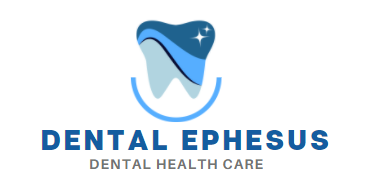A CT Calcium Score is a non-invasive imaging test that helps in detecting calcium deposits in the arteries of the heart. This test can help to determine the risk of heart disease and predict the likelihood of a heart attack. If your doctor has recommended this test, it’s important to know what questions to ask your cardiologist before proceeding with the CT Calcium Score.
What Is A CT Calcium Score And How Does It Work?
Before undergoing any medical test, it is essential to know what it involves and how it works. Ask your Denver heart doctor to explain what a CT Calcium Score is, how it works, and what it can detect. You should also ask about the risks and benefits of this test and if any alternatives can be considered.
Why Do I Need A CT Calcium Score?
Understanding why your cardiologist is recommending a CT Calcium Score can help you understand the importance of the test. Ask your doctor about your specific risk factors for heart disease and how a CT Calcium Score can help to determine your risk. This can include factors such as high blood pressure, high cholesterol levels, smoking, and a family history of heart disease.
How Should I Prepare For The Test?
Ask your cardiologist about how you should prepare for a CT Calcium Score. This may include instructions on fasting or taking any medication before the test. You should also ask about any potential side effects or complications that may occur during or after the test.
How Long Will The Test Take?
Knowing how long the test will take can help you plan your day accordingly. Ask your cardiologist about the expected duration of the CT Calcium Score test, and if you will need to stay in the hospital or if it’s an outpatient procedure.
Will The Test Be Painful?
A CT Calcium Score is a non-invasive test, but some people may experience discomfort or anxiety during the procedure. Ask your cardiologist if there will be any pain or discomfort during the test and if any sedation will be given to alleviate these symptoms.
What Can I Expect During The Test?
Ask your cardiologist about what to expect during the test, including the position you will be in, and if you will need to hold your breath during the scan. Knowing what to expect can help to reduce any anxiety you may have about the procedure.
What Happens After The Test?
After the CT Calcium Score, you should ask your cardiologist about the next steps. Will you be given the results immediately, or will you need to wait for a follow-up appointment? If any calcium deposits are detected, what are the next steps in terms of treatment or further testing?
How Accurate Is The Test?
Ask your cardiologist about the accuracy of the CT Calcium Score test and how reliable the results are. Knowing the accuracy of the test can help you make an informed decision about the importance of the test and the need for any follow-up procedures.
What Are The Risks Of The Test?
Like any medical test, there are risks associated with a CT Calcium Score. Ask your cardiologist about the potential risks, including exposure to radiation, contrast dye, and the risk of an allergic reaction.
How Will The Results Affect My Treatment Plan?
Knowing how the results of the CT Calcium Score will affect your treatment plan is essential. Ask your cardiologist about how the results will be used to determine your risk of heart disease and how it will impact your ongoing treatment plan.
Conclusion
A CT Calcium Score is a useful test to determine the risk of heart disease and predict the likelihood of a heart attack. If your doctor has recommended this test, it’s important to ask the right questions to ensure that you have a clear understanding of the procedure, the risks and benefits, and how the results will affect your treatment plan
























